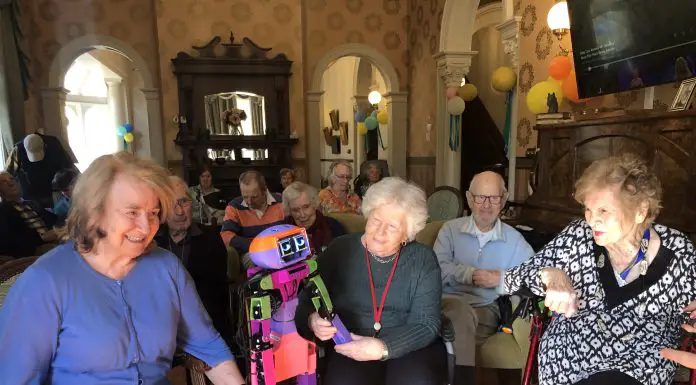This is the first article in our series where we profile the winning and highly commended entries of the 2023 Future of Ageing Awards. Goldilocks Smart Clothing for Seniors won the Technology: Health & Wellbeing category.
Goldilocks Smart Clothing for Seniors is an innovative solution developed to support individuals living with dementia while enabling them to remain in their homes safely and independently. Launched as a collaborative effort involving South Australian home provider ECH, and the University of Adelaide, this initiative integrates sensors into clothing to provide remote monitoring and proactive care for seniors with dementia. By improving safety and independence, Goldilocks aims to make a significant impact on the lives of seniors and their caregivers.
“Thoroughly researched tech that solves a major problem – measurable results”
2023 Future of Ageing Awards judge
Why it came about
The project addresses the challenges faced by ECH, which provides home support to over 15,000 clients, of whom more than 10,000 have varying levels of dementia. Monitoring and supporting those living with dementia can be challenging, especially when they live alone. ECH recognised the importance of using technology to assess and monitor these people to provide proactive care. After initial attempts with smartwatches and home IoT solutions proved unreliable, ECH sought a more dependable solution. Goldilocks was approached to develop smart clothing that could address these challenges effectively.
How it Works
Goldilocks Smart Clothing a singlet with integrated microsensors to detect the wearer’s biometrics. These sensors transmit data to a smartphone via Bluetooth Low Energy (BLE). The accompanying Goldilocks app employs machine learning algorithms to interpret the data, tracking the wearer’s activity, sleep quality, respiration, temperature, and emotional well-being. The app uses AI to establish the wearer’s ‘normal’ and updates it regularly to detect deviations. Goldilocks provides alerts for falls, wandering, and changes in vital signs, serving as a virtual coach to promote healthy behaviours and reduce the risks associated with cognitive decline. The app facilitates communication between the wearer and caregivers while ensuring data privacy and security. Seniors can purchase the Goldilocks singlet out of their Home Care Package for $399, with additional singlets available for $35 each.
Who Was Involved: Key stakeholders in the development of Goldilocks included Shem Richards, CEO of Goldilocks, who provided biomedical engineering expertise, Peter Alexander, an AI researcher, and an advisory board of experts. ECH’s Carolyn Dawkins, head of Customer Experience, played a pivotal role in this initiative. The University of Adelaide, led by Professor Jodie Conduit, Dr Manjula Dissanayake, and Dr Taylor Willmot, provided research and stakeholder engagement. The South Australian Government, under the leadership of Chief Scientist Caroline McMillen, contributed funding for the project.
“As we celebrate the prestigious Future of Ageing award, we reaffirm our commitment to creating a future where ageing is a golden opportunity for thriving. With Goldilocks, we aim to keep our wearers in the ‘Goldilocks Zone’, where every individual enjoys an optimal and fulfilling life journey.”
Shem Richards, Director, Goldilocks
Evidence of Success: Research and surveys revealed a strong interest in smart monitoring devices that have minimal impact on seniors’ daily routines. Over 75% of participants in a 3-month trial of Goldilocks utilised the device for 80% of the day, demonstrating its appeal. The singlet effectively monitored falls, wandering, mobility, respiration, skin and core temperature, providing actionable insights for caregivers. ECH’s studies found that over 75% of its users were proficient with smartphones, and 90% preferred to avoid residential aged care. This initiative demonstrated the potential to enhance the well-being and independence of seniors while addressing the challenges of dementia care.










